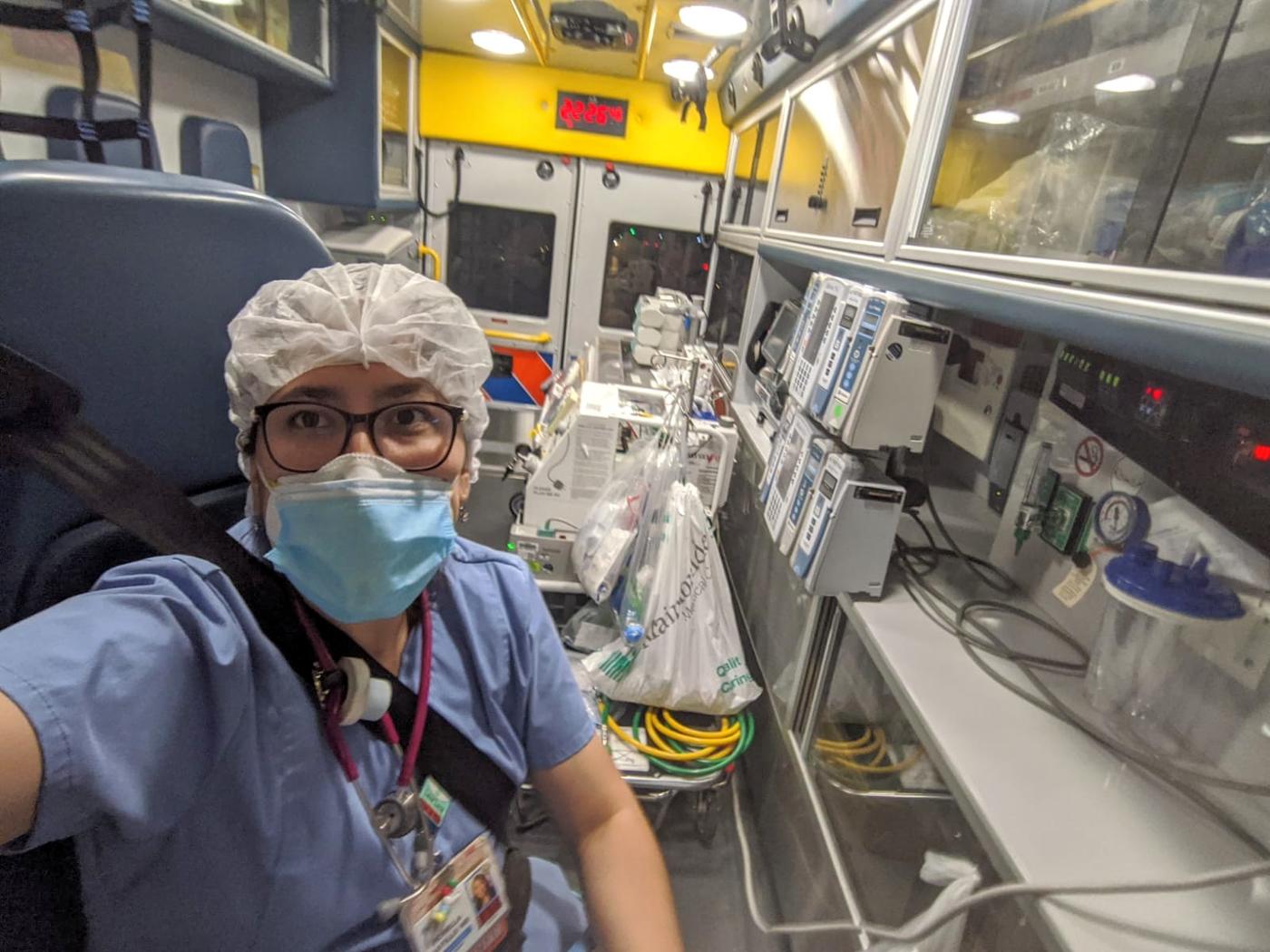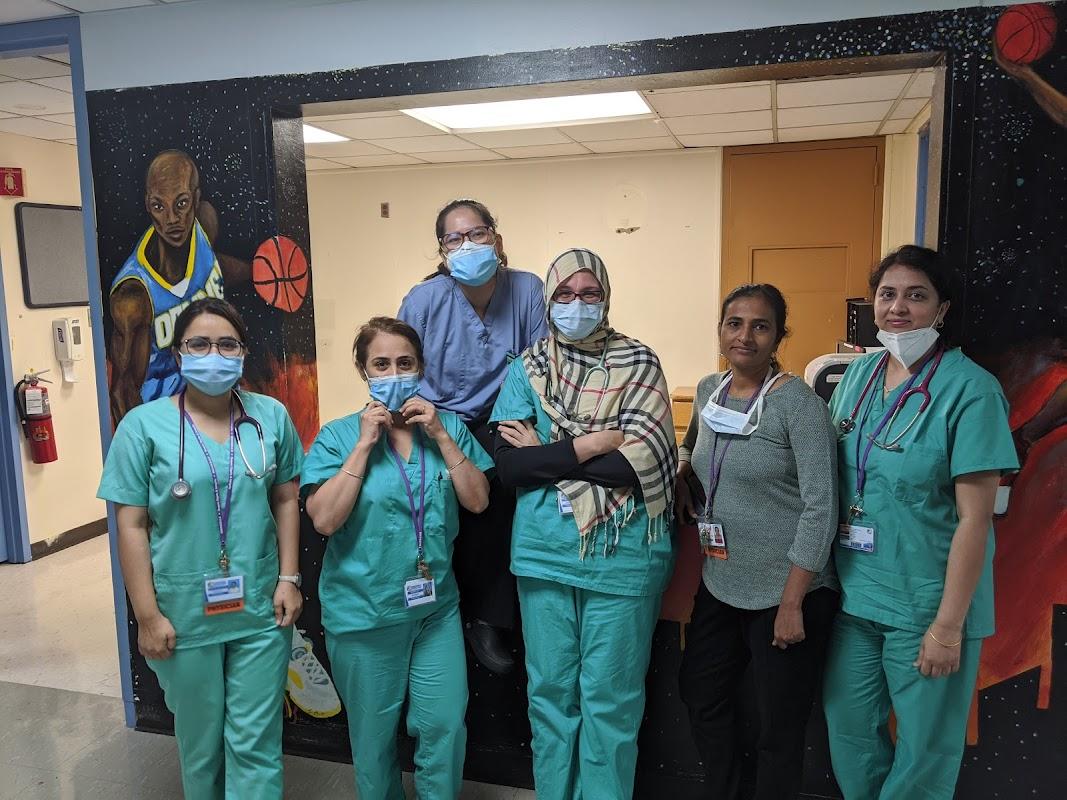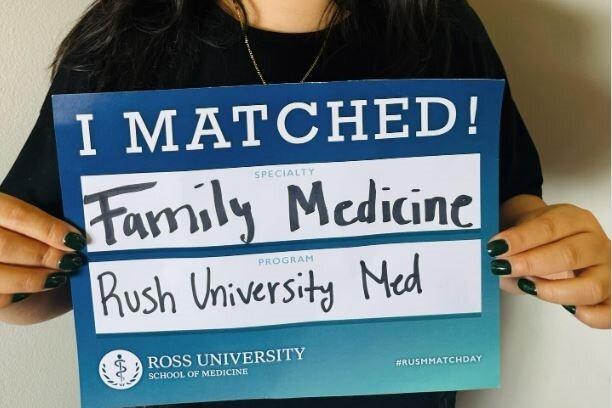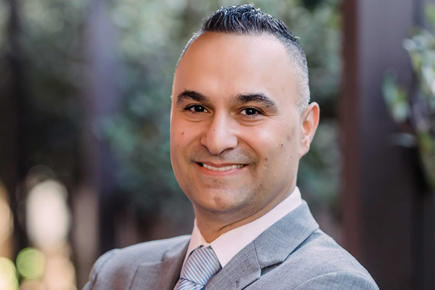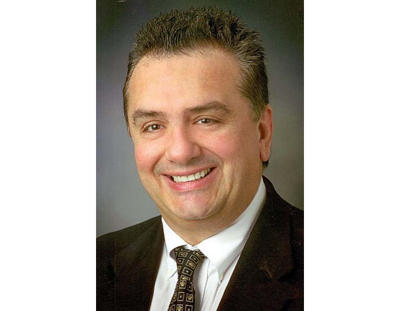When chief resident Fiorella Castillo, MD ’14, was growing up in Lima, Peru, she never would have imagined she’d be honored for her career success in medicine. Now a third-year pediatric resident and rising chief resident at Ross University School of Medicine (RUSM) hospital partner Brookdale Hospital Medical Center in Brooklyn, NY, she reflects on her medical journey and forward focus on health advocacy for underserved immigrant communities.
Appreciative of being recognized, Castillo said, “I have always been passionate about the health of children, especially child development and pediatric healthcare in minority populations. My education at RUSM opened doors to opportunities which allowed me to work on projects to improve the lives of children in underrepresented communities.”
Through her struggles as an immigrant, and then as a medical student in the US, Castillo learned that children and families face similar fundamental challenges stemming from poverty and lack of access to healthy foods and healthcare regardless of location.
Importance of Healthcare Access
“I grew up in an impoverished area in Peru. People there had limited access to paved roads, sanitation, and resources like running water,” Castillo explains. “In my neighborhood, we would often get sick because we didn’t have a reliable source of clean and plentiful water. We’d have to run after a water truck that would come by once a day. One time as I was running after a truck, I fell and cut my hand and we didn’t have adequate water to wash the wound. The impact of the lack of services to maintain health made a big impression on me, especially when I saw similar problems impeding access to healthcare in New York.”
Drawing on her desire to give back, Castillo earned a master of science degree in public health at the Johns Hopkins Bloomberg School of Public Health, which offered her insight on national and international child health projects focusing on malnutrition and obesity.
During her time at RUSM and later in residency at Brookdale Hospital, Castillo continued to work on community-oriented pediatric projects that examined the barriers patients face when accessing medical services, influenza vaccines, and the risk factors associated with increased pediatric emergency room utilization.
Recognizing Healthcare Disparities
“I work with many immigrant families who live in underserved areas,” Castillo said about her current role. “I see patients who experience gang violence in their neighborhoods. Often, these neighborhoods are ‘food deserts,’ with poor access to healthy foods and unsafe areas to exercise. How do you guide parents in the health of their children when they must deal with these tough barriers? In addition, healthcare availability is limited by socioeconomic status and access to insurance, as well as the availability of primary care physicians. Many of our patients rely on Medicaid and supplemental assistance. These conditions contribute to many of the health disparities we see at our hospital.”
Castillo was recently selected for the Academic Pediatric Association’s New Century Scholars Resident Mentoring Program and as one of the National Hispanic Medical Association’s 2021 Residents of the Year. She was also chosen as a Resident Program Delegate for the American Academy of Pediatrics (AAP) and is a member of the Equity, Diversity, and Inclusion Workgroup within the AAP’s Section on Pediatric Trainees. After residency, she plans to continue working on community-oriented research and quality improvement projects that help overcome health disparities to ensure all children, regardless of their race or socioeconomic status, have an equal right to thrive.
In the immediate future, Castillo will use a grant award from the Academic Pediatric Association to continue her work leading a Safe Sleep Initiative that will assess barriers related to the adequate practice of safe sleep, its interception with breastfeeding, maternal adverse childhood events, economic factors, and racism-induced stress. She is also working on quality improvement projects that aim to decrease the discharge boarding time from the pediatric inpatient unit, and a project in which residents contact patients' pediatricians during admissions to improve care coordination.
Giving Back
Additionally, Castillo was recently awarded two book grants — one from the Charlie’s Kids Foundation to distribute an educational book on safe-sleep practices, and the other from the AAP to provide Edible Alphabet cards to teach young children about healthy food choices.
As a Latina, Castillo says “RUSM has many underrepresented students, and I was always proud that it was bridging the diversity gap in academia. We need to have diverse role models to expand the pool of doctors who can understand and relate to patients.” She now works alongside other graduates of RUSM colleagues, commenting that Rossies are known for being very sharp and full of grit.
In the future, Castillo plans to work in the developmental pediatrics field and help minority children with special needs. “I want to focus on the relationship between adverse childhood events and housing insecurity, and the long-term outcomes of children with ADHD and autism.”
Learn More
The RUSM Alumni Resident of the Year Award is awarded to alumni who provide an extraordinary level of service and leadership as a resident. Learn more about the Alumni Awards selection criteria.

